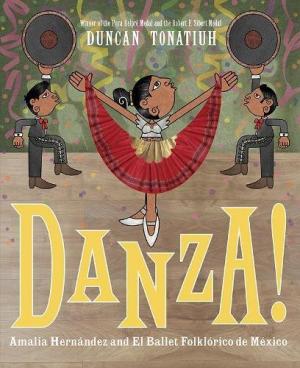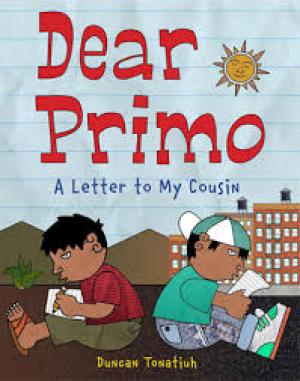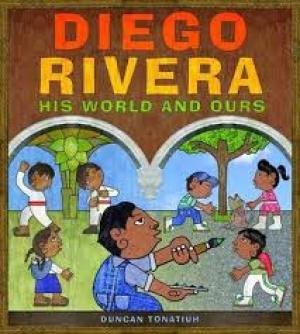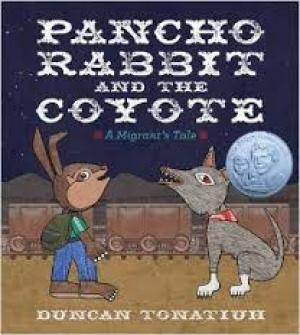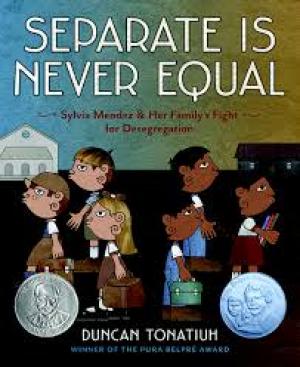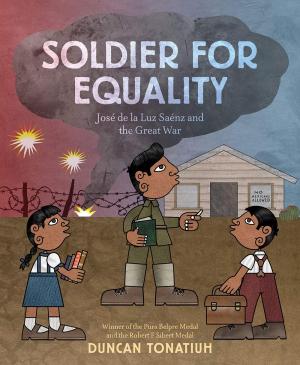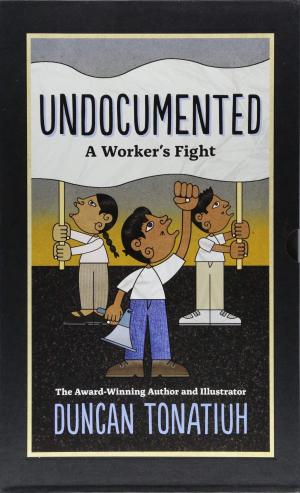Books by This Author
A Land of Books: Dreams of Young Mexihcah Word Painters
A young Aztec girl tells her little brother how their parents create beautiful painted manuscripts, or codices. She explains to him how paper is made from local plants and how the long paper is folded into a book. Her parents and others paint the codices to tell the story of their people's way of life, documenting their history, science, tributes, and sacred rituals.
Danza!: Amalia Hernández and El Ballet Folklórico de México
Danza! is a celebration of Hernández’s life and of the rich history of dance in Mexico. As a child, Amalia always thought she would grow up to be a teacher, until she saw a performance of dancers in her town square. She was fascinated by the way the dancers twirled and swayed, and she knew that someday she would be a dancer, too. She began to study many different types of dance, including ballet and modern, under some of the best teachers in the world. Hernández traveled throughout Mexico studying and learning regional dances.
Dear Primo
Product Description: From Mexican author and illustrator Duncan Tonatiuh comes the story of two cousins, one in America and one in Mexico, and how their daily lives are different yet similar. Charlie takes the subway to school; Carlitos rides his bike. Charlie plays in fallen leaves; Carlitos plays among the local cacti. Dear Primo covers the sights, sounds, smells, and tastes of two very different childhoods, while also emphasizing how alike Charlie and Carlitos are at heart.
Día de Muertos: Números: A Day of the Dead Counting Book
From award-winning and beloved author-illustrator Duncan Tonatiuh comes this celebratory bilingual picture book centering on a Día de Muertos ofrenda (Day of the Dead altar), constructed annually to honor the memory and welcome the spirit of a loved one. The book uses a counting structure, from one to ten, to focus on family members and their offerings, with a double-gatefold finale that opens to reveal the family gathered around the fully decorated ofrenda with all of their offerings.
Diego Rivera: His World and Ours
Duncan Tonatiuh introduces young readers to muralist Diego Rivera and his many sources of inspiration, such as the Cubism movement that he discovered in Paris, the ruins of ancient Mexican civilizations, and the daily lives of the Mexican people. He concludes by asking, "What would Diego Rivera paint today?" These intriguing reflections are brought to life by Tonatiuh's compelling, playful illustrations which evoke some of Diego's best known scenes and murals. 2012 Pura Belpré Illustrator Award.
Funny Bones: Posada and His Day of the Dead Calaveras
Funny Bones tells the story of how the amusing calaveras—skeletons performing various everyday or festive activities—came to be. They are the creation of Mexican artist José Guadalupe (Lupe) Posada (1852–1913). In a country that was not known for freedom of speech, he first drew political cartoons, much to the amusement of the local population but not the politicians. However, today he is best known today for his calavera drawings. They have become synonymous with Mexico’s Día de los Muertos (Day of the Dead) festival.
Pancho Rabbit and the Coyote: A Migrant's Tale
When the rains don't come in the spring, Papá Rabbit sets out north to work in the carrot and lettuce fields. He doesn't return when expected, however, and his eldest son, Pancho Rabbit, embarks on a journey to find his father. He meets a coyote who agrees to show him a shortcut, but only in exchange for Pancho's food. After an exhausting journey, Pancho is left with nothing — except the hope of finding his father.
Separate Is Never Equal: Sylvia Mendez and Her Family's Fight for Desegregation
When Sylvia Mendez, an American citizen of Mexican and Puerto Rican heritage, was forbidden from enrolling in her local school, her parents organized a lawsuit that eventually brought the end of school segregation in California seven years before Brown vs. Board of Education. Based on interviews with Sylvia Mendez, as well as court files and news reports, award-winning author and illustrator Duncan Tonatiuh brings the Mendez family's story to life in this compelling title that remains as relevant today as it was in 1947. A glossary and an author's note are included.
Soldier for Equality: José de la Luz Sáenz and the Great War
José de la Luz Sáenz (1888–1953) — or Luz — believed in fighting for what was right. Although he was born in the United States, he and his family experienced prejudice because of their Mexican heritage. When World War I broke out, Luz volunteered to join the fight. Because of his ability to quickly learn languages, he became part of the Intelligence Office in Europe. However, despite his hard work and intellect, Luz often didn’t receive credit for his contributions. Upon his return to the US, he joined other Mexican-Americans whom he had met in the army to fight for equality.
Undocumented: A Worker's Fight
Undocumented is the story of immigrant workers who have come to the United States without papers. Every day, these men and women join the workforce and contribute positively to society. The story is told via the ancient Mixtec codex format. Juan grew up in Mexico working in the fields to help provide for his family. Struggling for money, Juan crosses over into the United States and becomes an undocumented worker, living in a poor neighborhood, working hard to survive.
Books by This Illustrator
Child of the Flower-Song People: Luz Jiménez, Daughter of the Nahua
As a young Nahua girl in Mexico during the early 1900s, Luz learned how to grind corn in a metate, to twist yarn with her toes, and to weave on a loom. By the fire at night, she listened to stories of her community’s joys, suffering, and survival, and wove them into her heart. But when the Mexican Revolution came to her village, Luz and her family were forced to flee and start a new life. In Mexico City, Luz became a model for painters, sculptors, and photographers such as Diego Rivera, Jean Charlot, and Tina Modotti.
Esquivel! Space Age Sound Artist
Juan Garcia Esquivel was born in Mexico and grew up to the sounds of mariachi bands. He loved music and became a musical explorer. Defying convention, he created music that made people laugh and planted images in their minds. Juan's space-age lounge music – popular in the fifties and sixties – has found a new generation of listeners. And Duncan Tonatiuh's fresh and quirky illustrations bring Esquivel's spirit to life. Winner of the Odyssey Honor Audiobook Award.


